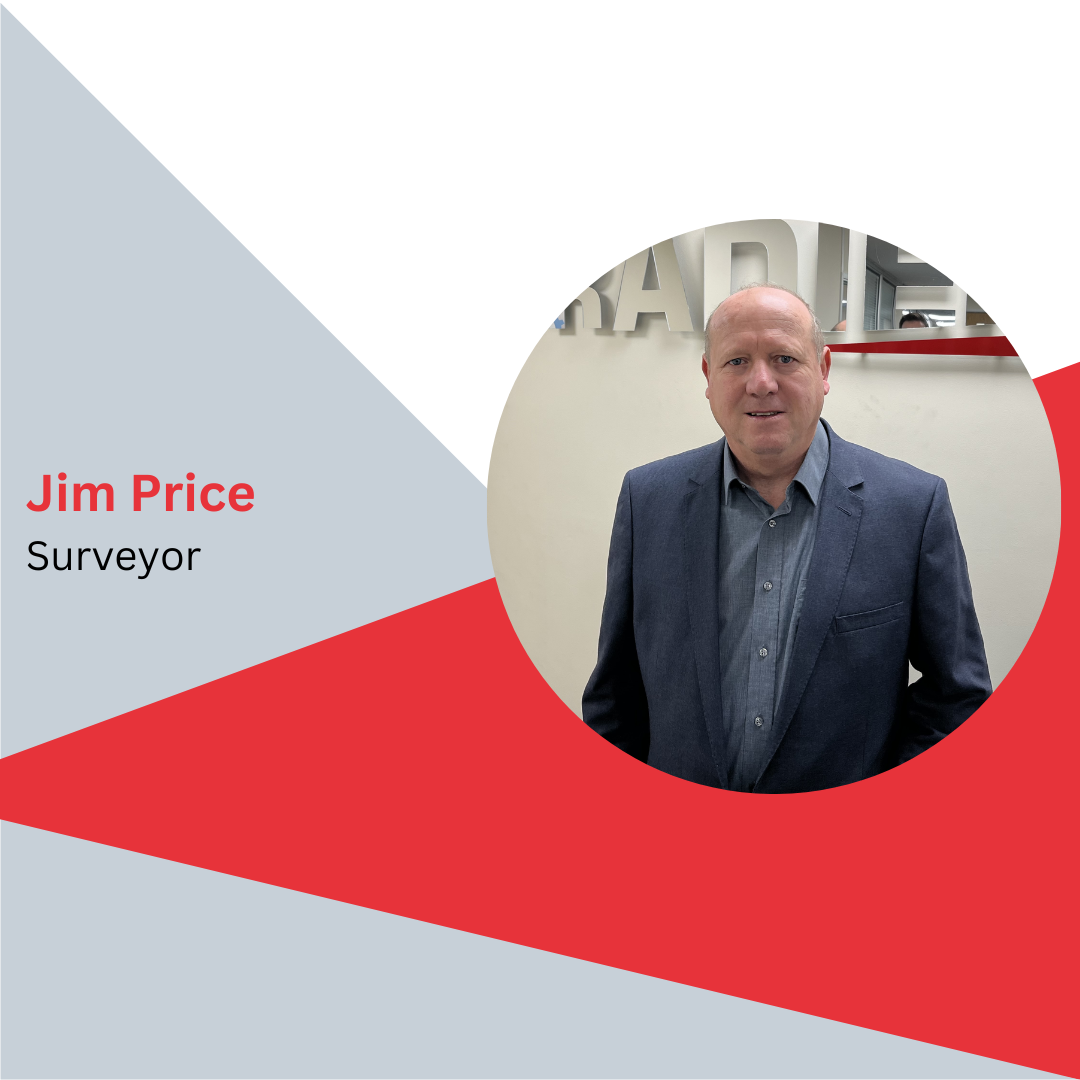A DAY IN THE LIFE OF A SURVEYOR – James Price

One of our most experienced and valued surveyors, James Price, gives an insightful precis on his career to date. As he explains in wonderfully entertaining fashion, his route into the industry was less than straightforward.
As a surveyor, is there such a thing as a ‘typical day’? If so, what does it consist of?
As a surveyor you could say there’s no such thing as a typical day. Some may visualise a surveyor as having a leisurely drive in the sunshine and putting a measuring tape on a roof. But in reality, it’s a little more involved. Most of the time is taken up traveling to site and gathering required project information. All of this requires processing to produce a quality drawing for the client.
Tell us about some of the challenges you encounter on a daily basis.
Surveying at times can be very challenging. The British weather, in particular, can make a real difference to the time spent on projects. There is always the elusive outlet that is just waiting to be discovered (or not). But with a little determination and patience, we always manage to get there in the end.
Do surveyors have a favourite day of the week (other than Friday)?
There is no particular favourite day of the week. As every day can be challenging and different. It’s always best to consider taking one day at a time because I will be somewhere different the next day.
What excites you about your job?
The thing that excites me the most about being a surveyor is the first look above the survey ladder followed by the thought, ‘How on earth do I make this work’? This is the time when all the years of roofing come into their own in respect of problem solving and instigating viable solutions that work for everyone.
What made you want to become a surveyor?
I became a roofing surveyor simply by chance. I’ve been in the roofing industry for most of my life following a failed attempt to get into the engineering sector in the 1980s. I was given a job as a labourer for a local roofing company that would have a twist later on in my career. I learnt quickly and soon moved up the ranks and was lucky enough to work on all aspects of roofing. I moved to a few companies throughout my career and developed a lot of skill and knowledge that stood me in good stead in later years. They say your destiny is set, but events can conspire to take you down a different path. The same manager I started with all those years ago was also one of Gradient’s founders and managers. He recognised my ability and potential and asked me to work as a surveyor.
What skills and experience do you bring to the role?
When I first worked for Gradient as a surveyor, I generally wondered if I had made the right move. I thought to myself, ‘What can I possibly offer this skilled experience company’? How wrong I was. All those years of roofing experience and knowledge had given me a good foundation for the next step.
Are you able to divulge any surveyor tricks of the trade?
Most of us surveyors like to keep their tricks of the trade in reserve, as you never know when you might need it. All I will say is, make sure you’re always in possession of good quality measuring equipment, and always measure twice and input the information once, as mistakes can be costly and time consuming for everyone.
What makes a good surveyor?
A good surveyor is one that will advise people when they know something is wrong. You require a good eye for detail and need to remember that things might not always be as they seem. Always check everything and never assume.
Where is your work generally based? Have you worked in any strange/unusual places?
My work is generally based in the Midlands. But as with many companies the work is where the work is and travelling is always part of the job. Roofs come in all shapes, sizes and locations so I have been on lots of different projects, from nuclear power stations to schools and domestic properties. Each one required the same level of expertise. A tapered roof insulation surveyor’s role is quite specialised and there is no qualification better than experience and knowledge. This is most critical to understanding how a roof should perform correctly.
What qualifications do you need to hold to become a surveyor?
Anybody is capable of becoming a surveyor. Just remember to engage with people already in this position, as knowledge and experience is a vital asset. Also, try not to run before you can walk, as a little stumble can be very costly. Always look at things carefully, as things such as a pesky outlet or cavity tray tend to hide. This is not always a nine-to-five job as things will always require attention at different times.
How do you visualise the future of surveying?
Technology and training is always the way forward with new developments such as drones. But I believe there is nothing that compares to walking over a roof, and picking up all the critical data required. Passing on things from the past and new things of the future is crucial in the development of the industry.
Could you tell us about Gradient’s customer service provision and the part surveying plays in it?
Within the industry and Gradient, I will always try to assist in any way possible to help educate my colleagues or give advice to clients. There is always room to develop and grow as different systems are brought into the marketplace. We have to adapt with the times to carry on servicing are customers.







